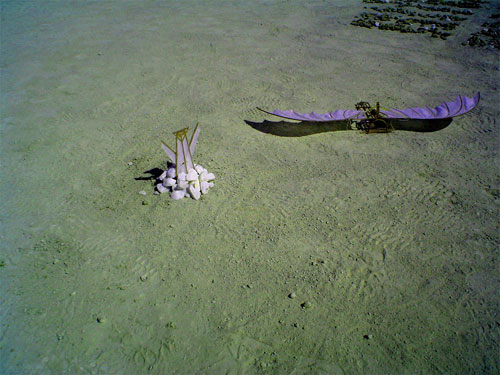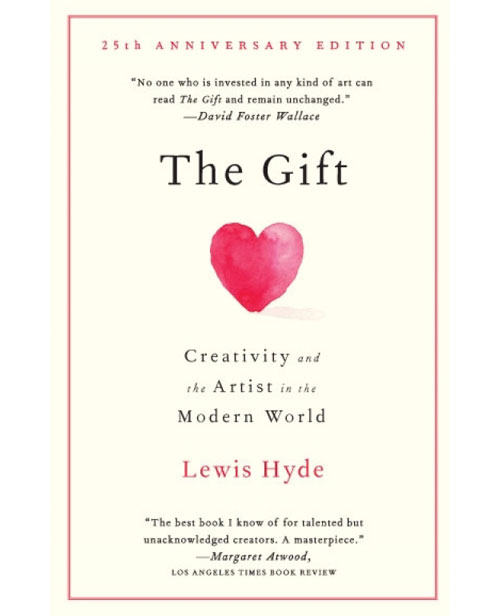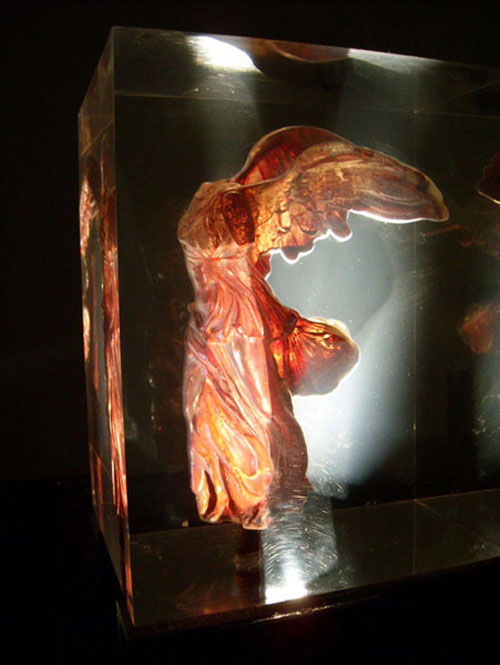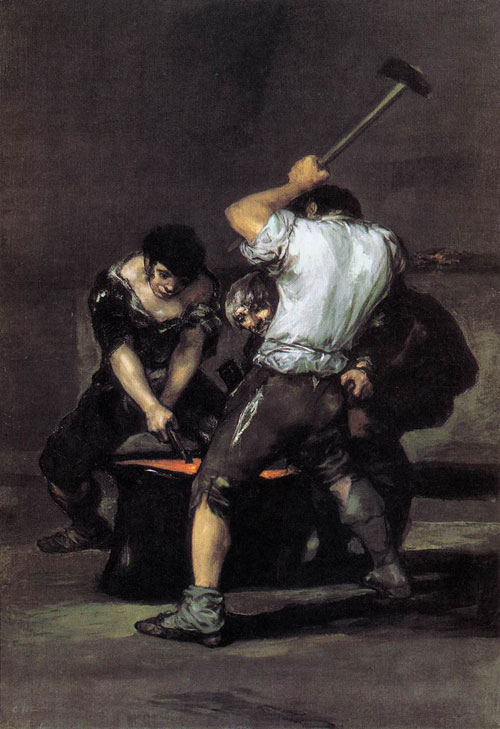Fractured Fairy Tales
By:
December 10, 2009
‘Tis the season when we look down from the mediascape onto Bedford Falls. Not for the usual reason. We’re not waiting on any wings. But we are due to be promoted, to consciousness that is; we’ve been waiting on the Singularity. It’s wonderful, maybe, but it’s not life yet. But now it seems that George Bailey might have made the jump ahead of us?

Wonderful? Not the town itself. Of the two versions, good Kirk and evil Kirk, “Pottersville” was the one that actually looked fun! Nightclubs, dancing girls, and lots and lots of neon. Nothing says “decadence” like neon. And Potter himself is fondly misremembered by all adult children of a certain age as Simon Bar Sinister in Underdog, voiced (by Allen Swift) and drawn in direct homage to Lionel Barrymore channeling Scrooge.
Wonderful? Not George, qua George. I mean, he’s ok. But vying with George for main character on Main Street is the Building and Loan. The Building and Loan is a credit union, a kind of virtual commons of value, with a central overseer to make sure no area gets overgrazed. And in the symbiosis of the two “old Building and Loan pals:” George, and the institution itself, something very interesting happens.

To clarify: by Bedford Falls of course I mean Burning Man, where the apotheosis of the Building and Loan is the gift economy. The overall environment on the playa is that of the gift, despite the recent small incursions of barter (both individual and official). You just give things away; it’s that simple, and that difficult. If you didn’t bring any things you give your attitude, or your attention. It’s fun, any adult knows that it’s much more rewarding to give presents to a child than to receive anything in return.

[see also Lewis Hyde’s The Gift]
But not only fun. Burning Man is not just a hedonistic rave, or a hardcore camping experience, although it is both of those. Something starts to happen within you. Even if you are the most uptight, emotionally conservative, workaholic puritan, and, you know, happy with that (and by you I mean, me), something starts to happen when you’re in an extended situation where no one is trying to sell you anything, be they objects, experiences, or ideas. When these things become not for sale, your defenses against the “sell” drop like the useless vestigial organs they should be, and you start to mutate, you start to change – dare I say, you start to evolve.
You may not be aware of it out there, at least your first time, but even then you will recognize it upon re-entry into the “default world,” where the contrast will hit you like the ocean’s surface. Of course you will readjust. It takes a few weeks, sometimes longer. Eventually you will be back to “normal,” except with the memory that things can be different, that “it” is both possible and real. The memory won’t draw you back, it will draw you forward.

[The Red and the Black, Andrei Molodkin]
You can’t do it by yourself. Central to this experience is the participation of everyone around you, the community is personal, internal, felt, and essential to the individual, well beyond the “borrow a cup of sugar” type of gesture. It gets in, like a jingle, or a meme, or a virus.

Through pouring his heart into the Building and Loan, George has become the conduit through which the social network manifests itself; he has in way become the town itself, a kind of townie singularity-with-a-little-s. He has lost his “self,” which is of course a cultural construct, despite how deeply personal it feels. But he has become something else, something multiple, something more creative, and something, finally, felt just as “personally.” The final stage of this process was the suicide attempt, you have to submit to the forge before being hammered out anew.

[The Forge, Goya, 1819]
But did George actually do it? Is Bedford Falls the Singularity? No, sadly, a barter economy is still a means of exchange; trading, even symbolically, is not a gift. There is an expectation of something in return. That expectation is the extra weight, altering the trajectory. For something to be a true a gift you are not allowed to host expectations, even of a “thanks.” So George and the Building and Loan, despite the communal nature of the thing, don’t make the cut. But they come pretty close within the limits of exchange.
The gift that George receives, as a result of his empathy, is symbolized less by the piles of cash on the table, than by the audience’s usual reaction to the final scene. This is Capra’s gift to us: a few seconds of the next level, where we could be going, together. One orbit up.
Artists in residence archive.
